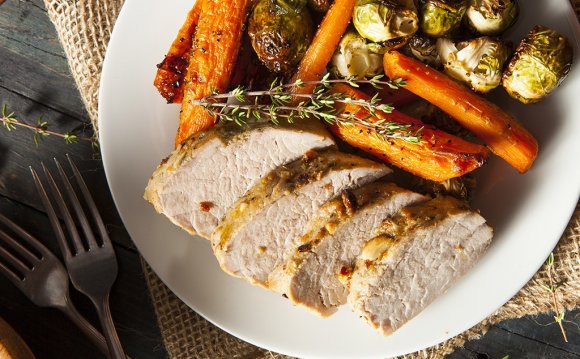
"The Healthy Geezer" answers questions about health and aging in his weekly column.
Question: I've been on a diet high in proteins and low in carbohydrates for several weeks now, and I've lost weight on it. What do you think of this type of diet?
Answer: High-protein diets can bring a quick drop in weight because eliminating carbohydrates causes a loss of body fluids. And, high-protein diets cause substances called ketones to be released into the bloodstream. The ketones make dieting easier by lowering appetite.
I've always been skeptical about any diet that is unbalanced. Logic tells me that I must be doing something bad to my body. I don't think it's safe to lean in one direction at the dining-room table. [7 Foods You Can Overdose On]
"For most healthy people, a high-protein diet generally isn't harmful if followed for a short time, such as three to four months, and may help with weight loss, " according to Katherine Zeratsky, a dietitian at the Mayo Clinic. "However, the risks of using a high-protein diet — usually with carbohydrate restriction — for the long term are still being studied. Several health problems may result if a high-protein diet is followed for an extended time."
Here are some problems that can happen to people on a high-protein diet:
Many of these diets include a lot of red meat and fat, which can increase your risk of heart disease.
A protein-packed diet may cause liver or kidney problems.
"If you want to follow a high-protein diet, do so only as a short-term weight-loss aid. Also, choose your protein wisely, " Zeratsky wrote on the Mayo Clinic website.
She recommended eating fish, skinless chicken, lean beef, pork and low-fat dairy products, and carbohydrates that are high in fiber, such as whole grains, vegetables and fruit.
People with kidney disease, liver disease or diabetes, and those taking medication for a chronic health condition, should talk to their doctor before starting a high-protein diet, Zeratsky said.
The American Heart Association doesn't recommend high-protein diets for weight loss because "people who stay on these diets very long may not get enough vitamins and minerals and face other potential health risks, " according to the organization's website.
The AHA also asserts that more research is needed on the effectiveness of these diets for long-term weight loss.
Most Americans already eat more protein than their bodies need. The AHA urges dieting adults to eat no more than 35 percent of total daily calories from fat, less than 7 percent of total daily calories from saturated fat, and less than 1 percent of total daily calories from trans fat. Trans fat raises your "bad" (LDL) cholesterol and lowers your "good" (HDL) cholesterol.
On most high-protein diets, meeting these AHA goals is impossible.
The American Heart Association urges people to use safe and proven methods for losing and maintaining weight. Dieters should pay attention to calories and enjoy healthy, nutritionally balanced meals. The AHA says a healthy diet includes a variety of foods, and is rich in fresh fruits and vegetables.
INTERESTING VIDEO












